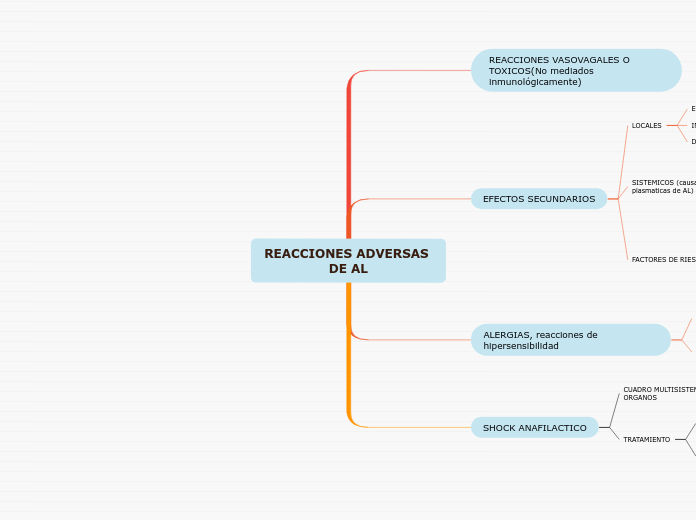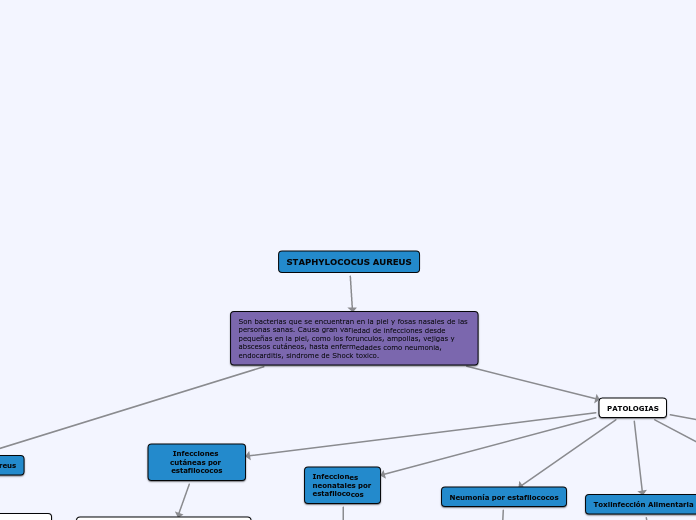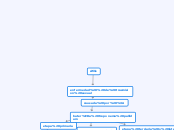REACCIONES ADVERSAS DE AL
To name your story, you have to think about the overall message and what you want your audience to understand from the story. Also, make it relevant and easy to remember.
SHOCK ANAFILACTICO
TRATAMIENTO
SECUENDARIO: ADMINISTRACION DE BRONCODILATADORES, CORTICOESTEROIDES Y ANTIHISTAMINICOS.
PRIMARIO:ADRENALINA,-SOPORTE DE LA VIA AEREA MANTENIENDO EL OXIGENO,-REANIMACION CON FLUIDOS ENDOVENOSOS.
CUADRO MULTISISTEMICO CON FALLA MASIVA DE ORGANOS
ALERGIAS, reacciones de hipersensibilidad
The ending of a story is essential. We all know that if the ending is weak, what happened before loses its importance. So make it unpredictable, but fair. A resolved ending answers all the questions and ties up any loose threads from the plot.
tipo IV
This is the closure section of the story.
See examples of possible outcomes below:
- all problems have been solved
- it's clear how each one of your characters ends up
- your main character is transformed by the challenge
Reacciones TARDIAS: DERMATITIS-EXANTEMA MACULOPAPULAR.
MEDIADAS POR CELULAS T - LINFOCITOS-
Try answering these questions to come up with a closure:
- Have all the problems been solved?
- Is there a clear picture of what happens with each character in the story?
- Has the challenge transformed your main character?
- How do the characters feel in the end?
tipo I
This is the moment when the main character surpasses the last obstacle and finally faces their greatest challenge.
The climax usually follows one of these patterns:
- realization
- resolution
- choice
Type in your answer.
Mediadas por Ig E, reacciones INmediatas: ANGIOEDEMA-BRONCOESPASMO-DEPRESION CARDIOVASCULAR
EFECTOS SECUNDARIOS
The middle of the story is where you add layers of complications that will lead to the end. Reveal more about the character's journey. Did their personality go through changes? How did they overcome the challenges? And as you build up the story’s central conflict, make it more personal to that character. Also, from the middle act, you have to lead into the final act.
FACTORES DE RIESGO
There wouldn't be any tension and excitement in your story if there weren't any obstacles in your character's way.
Los AL de MAYOR potencial alergénico son la LIDOCAINA Y LA BUPIVACAINA
Riesgo mayor en AL del tipo ESTER
Antecedente de alergia a fármacos.
EDAD
SISTEMICOS (causados por altas concentraciones plasmaticas de AL)
Your character(s) need(s) motivation in order to solve the challenge(s).
EN SISTEMA CARDIOVASCULAR
Secondary characters might also have motives that lead them to cross paths with the main character or which might trigger them to help the main character.
Hipotensión y arritmias cardiacas
Taquicardia o bradicardia
EN SNC
Why does your character need to confront this challenge? What does he/she expect to accomplish by solving it?
See a few examples:
- will marry in 3 days
- can fix the mistakes of the past
gran vasodilatación que causa MAREO, CEFALEA, TINNITUS, ALTERACIONES DEL ESTADO DE ALERTA, CONVULSIONES, COMA.
LOCALES
Each story has a main character and that character usually needs to solve a problem or challenge. The character's challenge is the one that creates tension throughout the story.
DAÑO EN NERVIOS PERISFERICOS
Type in any other challenges which other characters in the story need to face.
INFLAMACION
EDEMA
In most stories, there are 3 challenges. The number 3 is a mystical number symbolizing completeness. Try to come up with interesting challenges with which your character needs to struggle.
See a few examples below:
- turns into a werewolf at night
- is sent back in time
REACCIONES VASOVAGALES O TOXICOS(No mediados inmunológicamente)
In the beginning of the story (or the exposition), you will need to introduce the setting and characters. You might also want to introduce the main conflict. This part of the story is important because it gives the reader necessary background information and maybe even a first insight into a character’s personality.










